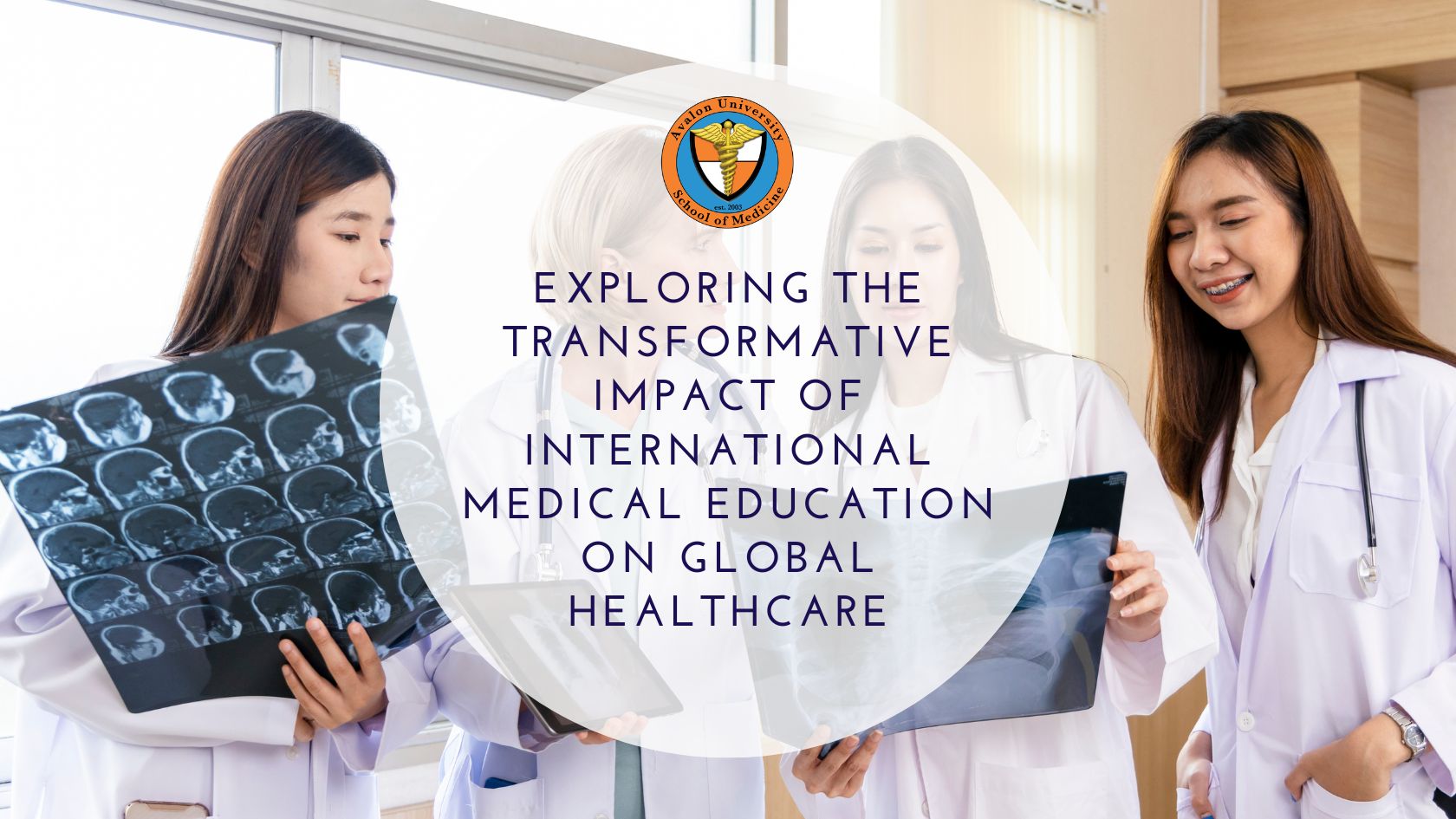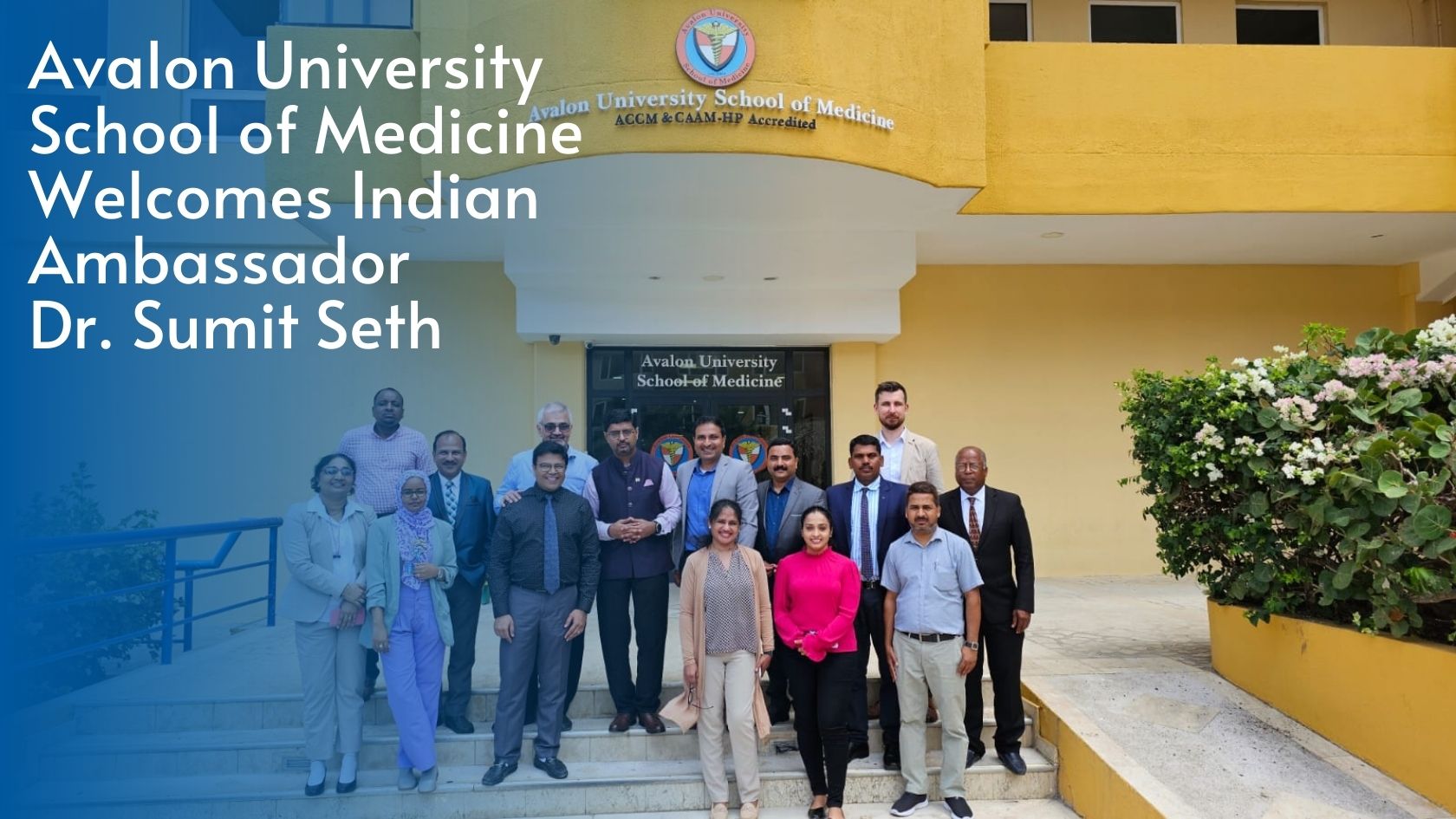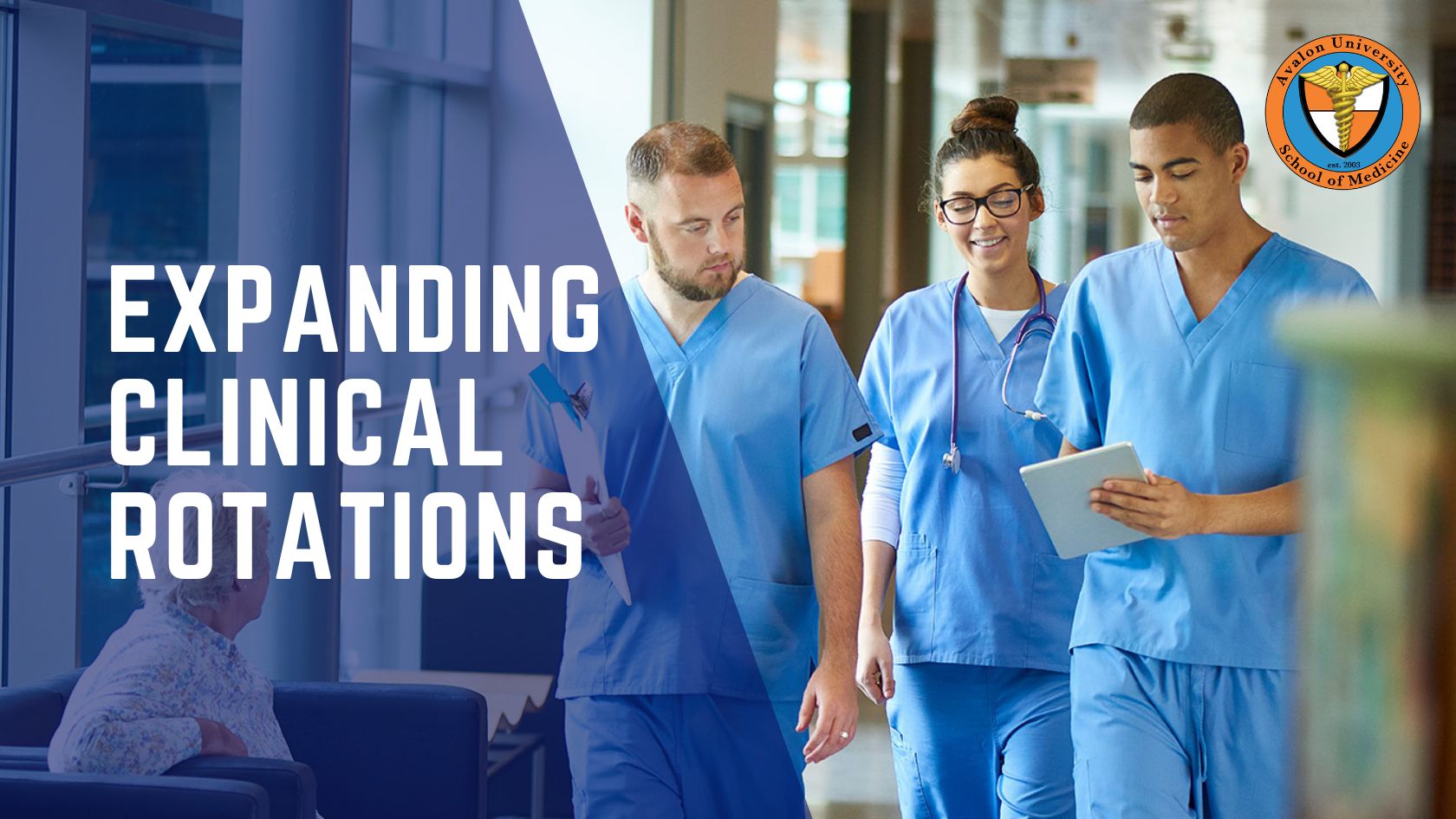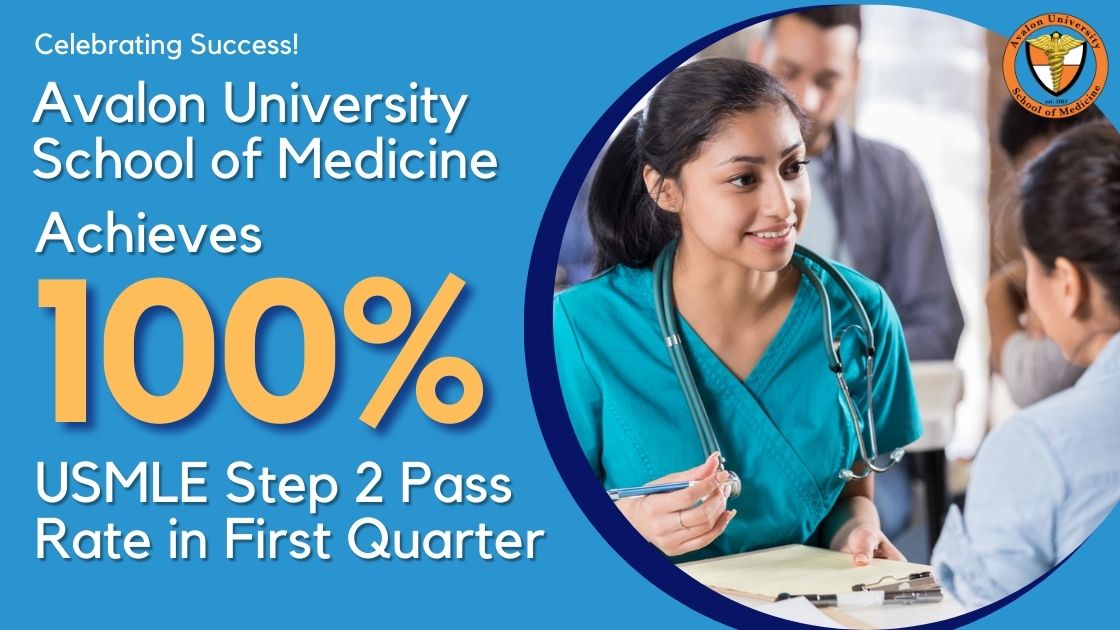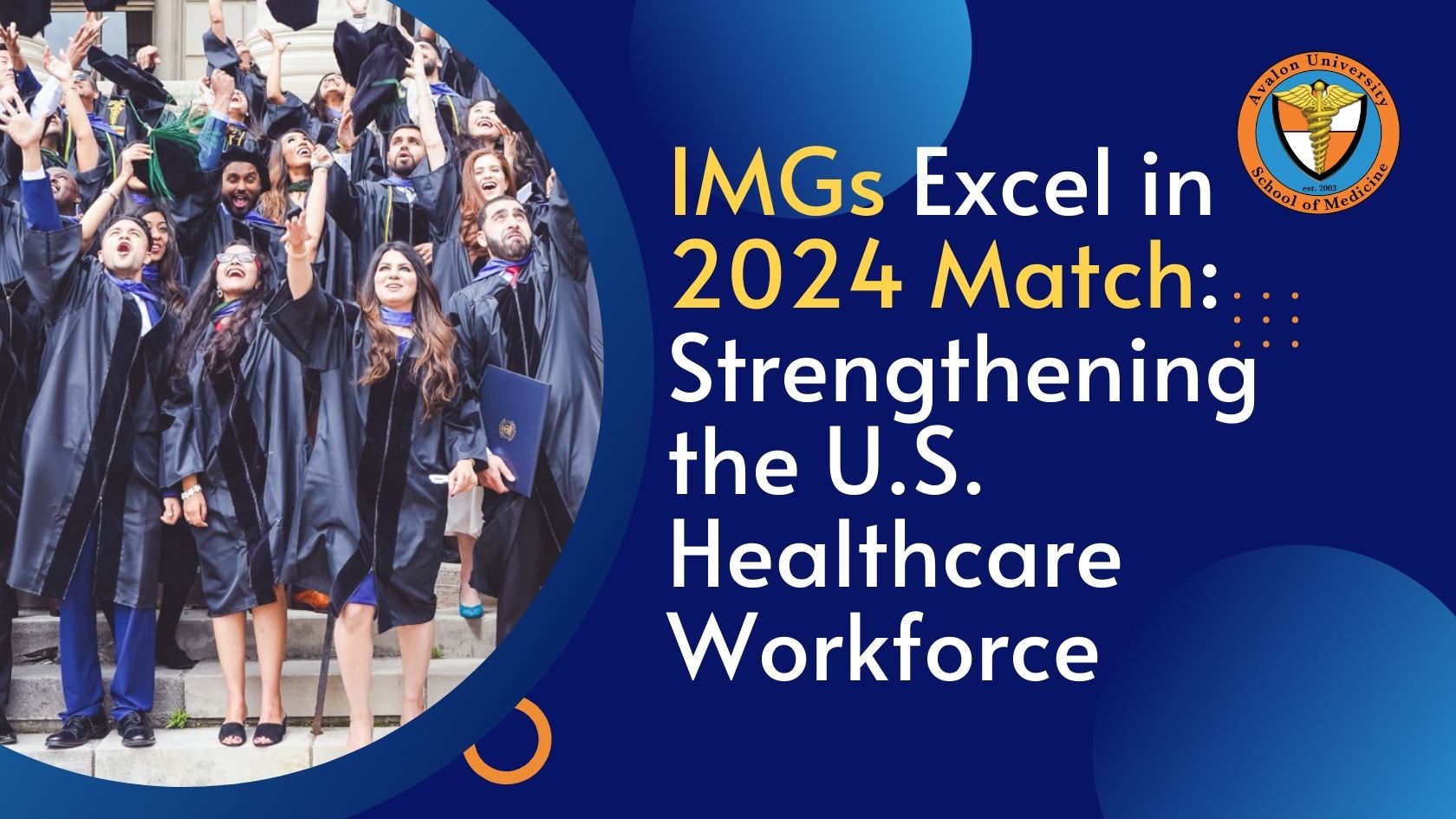Exploring the Transformative Impact of International Medical Education on Global Healthcare
In an interconnected world where borders are becoming increasingly permeable, the field of medicine is experiencing a profound transformation through international medical education. This paradigm shift not only shapes the future of medical professionals but also has far-reaching implications for global healthcare. In this blog, we explore the significance of international medical education at Avalon University, one of the only Accredited Medical Schools in the Caribbean, and its impact on individuals, communities, and the broader healthcare landscape.
The Globalization of Medical Education
International medical education refers to the pursuit of medical training beyond national borders. It involves students seeking education in countries other than their own, fostering a rich cross-cultural exchange of knowledge and practices. This globalization of medical education has become a powerful force in shaping the next generation of healthcare providers.
Breaking Cultural Barriers
One of the most evident impacts of international medical education is the breaking down of cultural barriers. When aspiring physicians from diverse backgrounds come together to learn, they bring with them unique perspectives, cultural insights, and varied approaches to healthcare. This multicultural environment cultivates a global mindset among students, preparing them to navigate the complexities of a diverse patient population in their future careers.
Enhancing Clinical Skills through Diversity
International medical education exposes students to a wide array of medical practices and diseases prevalent in different regions. This diversity in clinical exposure is invaluable, as it equips future healthcare professionals with a broader skill set and a deeper understanding of various healthcare systems. Exposure to a variety of medical challenges fosters adaptability, a crucial quality in a world where diseases do not adhere to geopolitical boundaries.
International Medical Education in Action: Case Studies
To illustrate the impact of international medical education, let’s examine a few cases from AUSOM’s clinical students, graduates, and preceptors highlighting how this transformative approach contributes to the improvement of healthcare on a global scale.
3rd year MD student, Leah Merrick, talks on Bridging Gaps in Rural Healthcare in Beckley, WV
In her third year as a medical student at Avalon University, Leah Merrick has actively embraced her role in addressing healthcare disparities in rural areas, particularly in Beckley, WV. Upon her transition to Avalon, Leah wasted no time immersing herself in the local community by participating in the Coalfield Community’s Health Fair.
Leah emphasizes the importance of community outreach in understanding the unique healthcare barriers that exist. She aims to reduce unnecessary hospital and office visits through primary and secondary prevention strategies, all while fostering a deeper understanding of the local culture. This involvement has ignited Leah’s passion for advocating policies that specifically target rural healthcare disparities, and she is committed to implementing sustainable healthcare solutions in underserved regions.
Leah extends an invitation to fellow students, urging them to join her efforts, emphasizing the profound rewards that come from active community engagement during rotations. “It truly is a rewarding experience where we benefit as much, if not more, than our patients do,” she encourages. Leah sees these community events as an invaluable opportunity for students to enhance their communication skills and contribute to improved patient outcomes.
Hailing from Tennessee, Leah Merrick has swiftly emerged as a leader at her clinical site, showcasing her dedication to making a positive impact within a short time since enrollment. Read the story of her Student Life at Avalon here.
4th yr MD student, Saad Akhter discusses addressing Global Health Disparities with “Global Grand Rounds”.
Recognizing the pivotal role of international medical education in tackling global health inequalities, Saad highlights the profound impact of his experiences gained through engagement in international medical conferences. The annual conference, “Global Grand Rounds,” initiated by Dr. Herbert Oye, DO FACOS, specializing in Vascular & Endovascular Surgery at the West Virginia Vascular Institute, stands as a testament to the commitment to bridging the clinical experience gap in both Africa and Rural America.
Under the preceptorship of Dr. Oye, Saad and fellow medical students have benefited immensely from their involvement in this initiative. Drawing on his personal experience through this conference, in Bayelsa, where Dr. Oye’s hospital is located, Saad underscores the sobering realities of “medical negligence due to resource shortages and public knowledge gaps”. This exposure, although virtual, “emphasizes the pressing need for change” in healthcare systems.
Saad not only bears witness to these challenges but actively contributes to the coordination of Global Grand Rounds. He explains, “These gatherings evoke a profound sense of global responsibility among students, compelling us to fervently advocate for health initiatives and equity.” His experiences in Bayelsa have reinforced his commitment, as he states, “I’ve personally witnessed the unfortunate consequences of medical negligence due to resource shortages and public knowledge gaps, emphasizing the pressing need for change.”
Saad Akhter’s journey exemplifies the transformative power of international medical education and the profound impact it can have on shaping advocates for health equity on a global scale.
Cultural Competence in Patient Care, 2023 Alumna, Dr Zainab AlQaysi
Dr. AlQaysi fondly reflects on her transformative clinical rotation in Ireland, emphasizing that “Participating in a clinical rotation abroad enriched [her] medical education with diverse experiences, cultures, and approaches. [Her] time in Ireland was particularly remarkable, the warm welcome from both doctors and patients made it an amazing learning opportunity.”
Proudly attributing this enriching experience to Avalon University, Dr. AlQaysi acknowledges that “Overcoming initial stress, [she] effectively presented [her] school, Avalon, and honed skills that will greatly benefit [her] medical journey”. She expresses pride in the cultural competence gained during this period, noting that it “equipp[ed] [her] to navigate various patient settings and healthcare environments with cultural sensitivity.”
These immersive experiences contribute not only to Dr. AlQaysi’s personal growth but also to the broader goal of improving healthcare outcomes and enhancing patient satisfaction. She recognizes the universal importance of such cultural competence, emphasizing its role in fostering positive outcomes in diverse medical contexts—a shared aspiration for physicians across all cultures.
Challenges and Opportunities in International Medical Education
While international medical education brings numerous benefits, it is not without its challenges. Adapting to different healthcare systems, cultural norms, and educational approaches can be daunting for students. However, these challenges present valuable learning opportunities, fostering resilience, adaptability, and a deeper appreciation for the complexities of global healthcare.
In the context of international medical graduates (IMGs) pursuing careers in the United States, additional challenges may arise due to existing biases within the healthcare system. IMGs often face unique hurdles, including skepticism about the equivalency of their education and training, cultural differences, and at times, unwarranted prejudices. Despite these obstacles, navigating through such biases becomes an integral part of their journey. IMGs contribute diverse perspectives and experiences to the U.S. healthcare system, enriching it with a global outlook.
Navigating Certification and Accreditation
An important aspect of international medical education is ensuring that the qualifications obtained are recognized globally. Issues related to certification and accreditation can arise, requiring students and institutions to navigate complex processes to ensure that the education received meets international standards. AUSOM has addressed these challenges by becoming one of the few fully Accredited Medical Schools in the Caribbean with both ACCM and CAAM-HP accreditation.
Building Collaborative Networks
At AUSOM, our commitment to global collaboration is exemplified by the active involvement of our Dean, Dr. Sateesh Arja, in the World Federation for Medical Education (WFME). Dr. Arja serves as an assessor, contributing his expertise to the evaluation and enhancement of medical education programs worldwide. His participation in the WFME underscores AUSOM’s dedication to maintaining the highest standards in medical education and fostering collaboration at the global level.
Looking Ahead: The Future of Medical Education
Avalon University School of Medicine (AUSOM) stands at the forefront of evolving trends in international medical education, committing to innovation and excellence. Integrating cutting-edge technology like virtual reality and online platforms enhances the student experience. AUSOM, an Accredited Medical School in the Caribbean, remains a leader in medical education. The democratization of education aligns with AUSOM’s mission to empower diverse healthcare professionals globally.
Amid transformative changes in healthcare delivery, AUSOM prepares students for success in a dynamic global healthcare community. International medical education breaks cultural barriers, enhances clinical skills, addresses global health disparities, and fosters social responsibility, paving the way for a more inclusive and collaborative future. Despite challenges, it propels us toward a borderless healthcare future, ensuring quality care for all.

